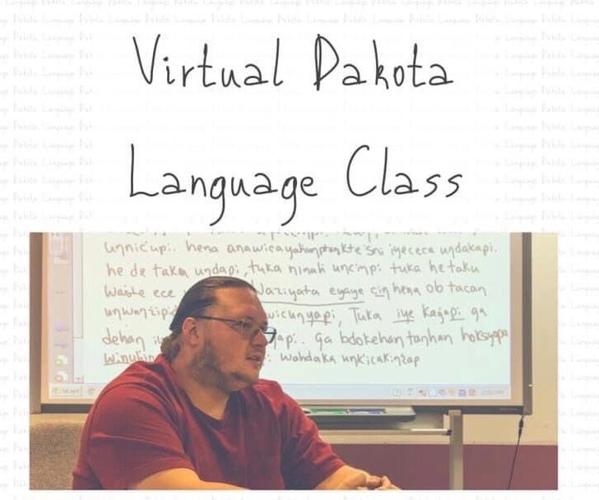WELCH -- In spite of the many changes forced upon the world by COVID-19, Prairie Island Indian Community members have managed to hold on to many of the traits and traditions they value the most.
“I feel that in every bad situation, there is a silver lining somewhere,” said Shelley Buck, Tribal Council president. “One of the silver linings that we have had is the Dakota language. We were able to create a virtual class so that more people can participate.”
Not only have class attendances increased, but the lessons are being recorded and archived on the tribe’s YouTube channel where tribal members can watch them any time and improve their language skills.
“Our language preserves who we are as Dakota people,” said Buck, who is working on a master’s degree in Indian law from the University of Tulsa College of Law. “Our whole being is encompassed in that language. It’s been really great to have the ability to reach more people and grow the language.”
Community members also offered activities such as ribbon-skirt making and beading through virtual classes.
"I'm sure my ancestors never imagined doing things this way, but it is pretty neat that we are able to continue those old ways in new formats," Buck said.
Making sure that community members can access those language classes and other learning opportunities has kept the tribe’s education department busy, ensuring that all students and families have good internet access and any help they need along the way.
Most education in the spring went well, according to Buck, but when graduation time arrived, one tradition faced a challenge.
“Every year, when we have graduates from high school, college, and technical schools, we always have a big celebration,” she explained. “We have a big dinner for them. We give them a blanket and some other gifts, and we celebrate them.”
However, with COVID-19 looming this year, the celebration changed, including canceling the dinner. Instead, graduates went to the powwow grounds wearing masks and waited for their name to be called. Each graduate up, one at a time, to receive the gifts, to maintain social distancing.
“We still wanted to celebrate them and make them feel special,” said Buck. “It is still the same accomplishment, regardless of what is going on. They still worked hard and attained that accomplishment, and we wanted to let them know how proud we are of them.”
Sharing in good times and in bad
The Prairie
Island Indian Community has a long tradition of sharing and that did not change with the pandemic. The community's source of revenue -- Treasure Island Resort & Casino was closed from March to June 1, not generating money and not providing paychecks, but still bringing many expenses. However, tribal members held several food drives and were able to get food to people who needed it. The tribe also ended up with some extra PPE and were able to donate that to local organizations that needed more.
The Tribal Council dug into coffers to deliver funds to area groups hit hard in the pandemic. Individuals have helped, too. For example, Buck's daughter Kachina Yeager designed a Black Lives Matter T-shirt and hoped to sell 50 T-shirts to donate the proceeds. She ended up selling 900-plus shirts and raised more than $11,000 for MIGIZI a Twin Cities organization that nurtures the development of Native American youth.
“It feels good to know that we can give in this time of need,” Buck said. “I’m happy that we are able to hold onto that value that we have as Dakota people.”
One other concern was caring for the community's buffalo herd. Even with the casino closed, the herd still needed to be fed and cared for.
"The buffalo did quite well," said Darrell Breuer, support services director at Treasure Island Casino & Resort. "They had 40 calves during the shutdown. Nature kept doing its thing."
When the coronavirus problems hit, one of the first concerns for the tribal council was taking care of the elderly residents at Tinta Wita Tipi. At first, gatherings and outings were restricted, but soon, they had to stop all visits except by those working in the living facility. Buck said that was hard for the elders because family means so much to them.
“We got iPads for them so they could talk to their family members and see them virtually and keep in contact that way,” Buck said. “We made care packages for our elders that included the supplies they needed to keep safe. They are our first priority. They are our biggest resource.”






(0) comments
Welcome to the discussion.
Log In
Thank you for taking part in our commenting section. We want this platform to be a safe and inclusive community where you can freely share ideas and opinions. Comments that are racist, hateful, sexist or attack others won’t be allowed. Just keep it clean. Do these things or you could be banned:
• Don’t name-call and attack other commenters. If you’d be in hot water for saying it in public, then don’t say it here.
• Don’t spam us.
• Don’t attack our journalists.
Let’s make this a platform that is educational, enjoyable and insightful.
Email questions to mthorud@orourkemediagroup.com.